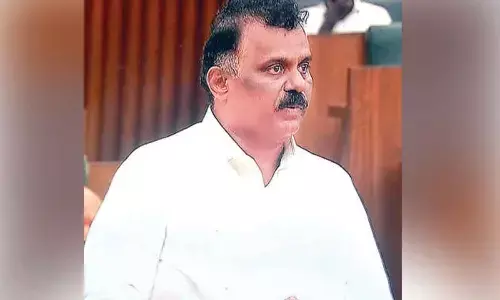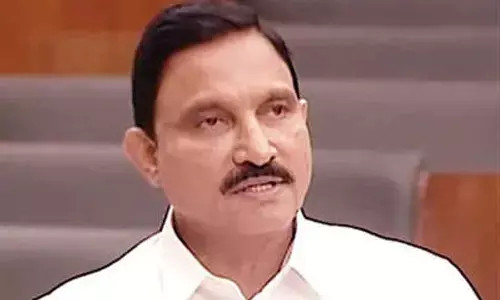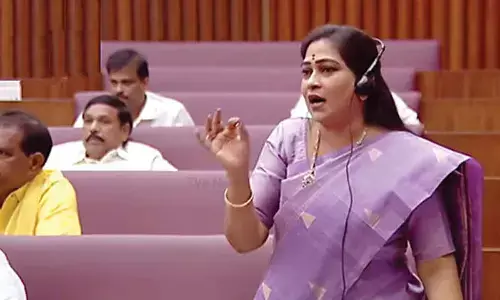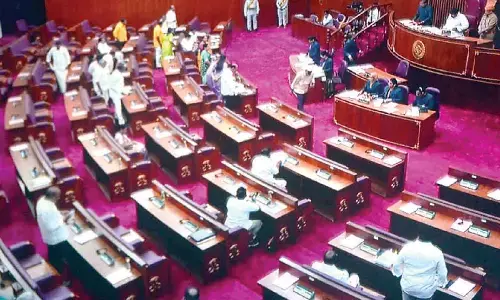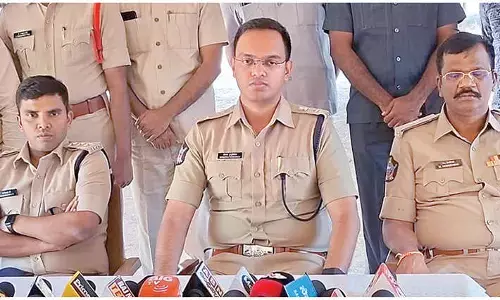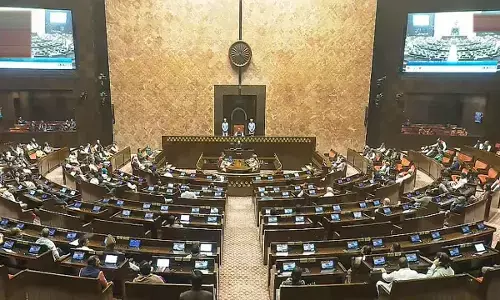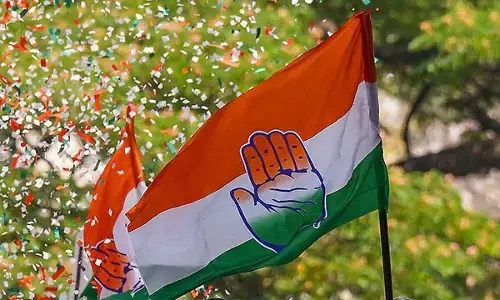Uniform national labour policy is need of the hour

The Chief Justice of India has recently expressed the opinion that there is a need for nationwide debate on retirement age of judges of Supreme Court of India and the High Courts.
The Chief Justice of India has recently expressed the opinion that there is a need for nationwide debate on retirement age of judges of Supreme Court of India and the High Courts.
It becomes all the more important because it has received approval though in personal capacity from the Chief of the government's legal structure.
While addressing members of the Supreme Court Bar Association (SCBA) , the newly appointed Chief Justice of India Sharad Aravind Bobde expressed himself in favour of enhancing the retirement age for the judges of the apex court from the present 65 years to 70 years and for the judges of the High Courts from 62 years to 68 years.
Similarly, the Attorney General of India, K K Venugopal also favoured the idea of enhancement of the retirement age for the judges of the higher judiciary.
He also opined that the tenure of CJI should be three years and not less so that he can have sufficient time to deliver his best.
Prima facie there is nothing wrong in increasing the retirement age of the Judges in the higher echelon of judiciary.
Then, a question arises as to why restrict this proposal only to the higher Judiciary and why not extend this benefit to the judges working in lower judiciary also who are now facing the challenge of huge backlog of about two crore cases.
Still going further why not have a relook into the entire gamut of the country's labour policy as a whole.
Unfortunately, at present there is no consistency in the service conditions, pay and perks and retirement age of the employees or workers under the Central and State governments.
While those working under the Central government retire at the age of 60 years, the retirement age for the State government employees in most of the States is in the range of 58 years to 62 years.
Further, there are significant variations in the pay structure and the service conditions between the employees of the Central government and State governments.
The sorry state of affairs prevailing in the private sector speaks volumes for the anti-labour policies of the successive governments.
The sunshine sector, called software, is no exception to such anti-labour practices. Quite often, due to personal bias employees are denied their legitimate benefits and those who protest are harassed or even fired arbitrarily in a high-handed manner.
The unorganised labour has nothing but misery. There is crass victimisation. They are underpaid, underprivileged and victims of exploitation.
Instead of showing concern for the occupants of cushy chairs, it would be better if the lawmakers focus their attention on these unprivileged or less privileged sectors of the labour market.
A review of the existing pay structure, services and retirement age of the employees and the workers both in the organised and unorganised sectors has become necessary in the light of the fact that the labour scenario has radically changed in the recent times.
On the one hand, the supply position of skilled and unskilled workers in the labour market has improved substantially, on the other, due to accelerated improvement in technology, though rapid industrial development has taken place, but the dependence on human labour has come down in a good measure.
Consequently, the unemployment among the both skilled and unskilled workers has been rising alarmingly. The goods and services sector too, has been showing an uptrend.
At the same time due to improved health standards and medical facilities the productivity of workers and their longevity have also improved.
Such a situation creates a paradox. It is undoubtedly true that the number of jobs seekers has gone up in the recent years, while that of job-givers have not increased proportionately.
Therefore, the new labour policy will have to ensure a fine balance between these two phenomena. If we have to choose between reducing the unemployment and utilising the services of more experienced old people, the prudence warrants that we should opt for the former.
In other words, extending the retirement age of the workers of any strata or category though may be useful to a particular sector of labour market, is certainly not preferable to providing opportunities to many young, deserving and meritorious unemployed people.
An example of judiciary in this regard will amply prove this point. In order to lessen the backlog of cases in regular courts the government has set up extra special courts particularly to try the criminal offences attracting imprisonment up to two years including the cheque bounce cases.
These courts have been presided over by the retired Judges from the regular courts Ignoring the vast number of young and sufficiently experienced practising lawyers.
Such a practice is certainly not desirable when considered from the national angle to accommodate meritorious aspirants from amongst practising lawyers.
Right to file regular appeal cannot be curtailed
A three – judge bench of the Supreme Court comprising Justice R Banumathi, Justice A S Boppanna and Justice Hrishikesh Roy has held that a defendant cannot be deprived of the statutory right to appeal under Section 96 (2) of the Code of Civil Procedure merely on the ground that earlier the application filed under Order IX Rule 13 CPC was dismissed.
The court added that on the other hand, the application under Order IX Rule 13 CPC cannot be filed after dismissal of appeal under section 96 (2) CPC.
The ruling was delivered in the case of N Mohan vs R Madhu
LS passes the Chit Funds (Amendment) bill
In order to facilitate the orderly growth of the Chit funds sector and enable greater financial access to people, the Lok Sabha on Nov 20 passed the Chit Funds (Amendment) Bill 2019.
Among the significant changes introduced in the Bill, notable are: the requirement of presence of at least two subscribers who should be either physically or via video- conferencing present when a Chit is drawn, increasing the limit of maximum commission of a foreman from five per cent of Chit amount to seven per cent and also granting a right of lien to the foreman against the credit balance of subscribers and providing the ceiling for the individuals up to Rs 3 lakhs and for firms up to Rs. 18 lakhs which may be collected by participation in a chit.
Beware, the big brother is watching!
Now, it is official! On November 20 the Lok Sabha was informed by the Minister of State G Kishan Reddy that 10 Central agencies are authorised to intercept phone and WhatsApp data.
However, for doing so, prior approval from the Home Secretary of the Central government or State government concerned shall be necessary and the standard operating procedure will have to be followed. There is no blanket permission to any agency for interception, monitoring or decryption.
The following agencies have been authorised to intercept phone and WhatsApp data:
1. Intelligence Bureau 2. Narcotics Control Bureau 3. Enforcement Directorate 4. Central Board of Direct Taxes 5. Directorate of Revenue Intelligence 6. Central Bureau of Investigation 7. National Investigation Agency 8. Cabinet Secretariat (RAW) 9. Directorate of Signal Intelligence (For service areas of Jammu & Kashmir, North East and Assam only) and 10. Commissioner of Police, Delhi.
The term 'acquittal' okay, but not 'honourable acquittal' In an interesting judgment delivered by a division bench of the Madras High Court comprising of Chief Justice A P Shahi and Justice Subramanium Prasad the court has held that a revision or a petition under section 482 of the CrPC seeking declaration that an acquittal judgement of a trial court is "Hon'ble acquittal " is not maintainable.
The court said: "In our opinion, the matter does not remain res integra and stands now settled that such an exercise of jurisdiction under Section 482 of the CrPC to declare the judgement to be one of an Hon 'ble acquittal, inspite of the acquittal having been extended on the benefit of doubt, would not sustain in law".
The bench delivered this judgment in W.A No. 3877 of 2019 between C Surendhar and the Director General of Police, Chennai and others on dt. November 13.


